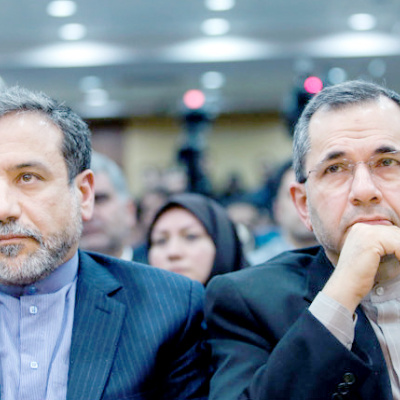
Rewritten Title:
“Iran Demands Security Guarantees for Diplomatic Talks Amid Rising Tensions”
Iran’s Diplomatic Stance: Negotiations Only with Assurances Against Military Aggression
Tehran’s Key Condition for Resuming Talks
Recent statements by Iranian Foreign Minister Abbas Araqchi and Deputy Foreign Minister Majid Takht-Ravanchi underscore Iran’s firm precondition for reengaging in diplomatic talks with the U.S.: a binding guarantee against military attacks during negotiations. This demand follows the destabilizing 12-day conflict triggered by Israeli airstrikes—backed by direct U.S. involvement—which targeted Iranian nuclear facilities in June 2024. The attacks, occurring amid indirect Tehran-Washington talks in Muscat, severely eroded Iran’s trust in the diplomatic process.
A Fragile Ceasefire and Lessons from Conflict
The brief but intense war, which resulted in significant casualties—including military personnel, nuclear scientists, and civilians—prompted Iran to launch defensive operations such as “True Promise 3” and “Basharat al-Fath”, demonstrating its capacity for retaliatory strikes. While a U.S.-proposed ceasefire took hold in early July, Iran remains wary of renewed hostilities.
Takht-Ravanchi, in an interview with the BBC, emphasized that Washington’s contradictory signals—expressing willingness to negotiate while threatening further attacks—only deepen Tehran’s distrust. He reiterated Iran’s right to peaceful nuclear enrichment, dismissing demands for zero enrichment as “the law of the jungle.”
Diplomacy Amid Distrust: Iran’s Dual Approach
Despite skepticism, Iran maintains its openness to dialogue, as evidenced by its diplomatic normalization with regional neighbors like Saudi Arabia and Egypt. However, Foreign Ministry Spokesperson Fatemeh Mahjoub clarified that no timeline exists for renewed nuclear talks, citing U.S. “inconsistencies” and the Muscat negotiations’ abrupt collapse due to military strikes.
Araqchi stressed that Iran’s nuclear program—a “matter of national pride”—cannot be dismantled by force. “Bombings cannot erase scientific knowledge,” he told CBS, affirming Iran’s ability to rebuild and compensate for damages.
U.S. Role and Regional Implications
The U.S.’s recent $510 million arms sale to Israel—including bunker-busting JDAM kits—has further strained prospects for diplomacy. Tehran views such moves as proof of Washington’s “maximalist pressure strategy” to coerce concessions. Meanwhile, indirect U.S. overtures via Gulf mediators (e.g., Qatar) lack credibility without explicit commitments to halt hostilities.
Three Possible Scenarios Ahead
- Continued Deadlock: Without security guarantees, Iran may refuse talks indefinitely.
- Escalation: New attacks could trigger Iranian counterstrikes, mirroring recent operations.
- Conditional Diplomacy: Mediated talks might resume if the U.S. provides verifiable assurances.
The Path Forward
With the 2025 sunset clause of the JCPOA looming—potentially triggering UN sanctions—the window for de-escalation narrows. Iran’s stance reflects a principled balance: readiness for diplomacy paired with unwavering defense preparedness. As Takht-Ravanchi noted, “Iran seeks no war but will remain vigilant to prevent further surprises.”
The ball now lies in Washington’s court: transparency and restraint are essential to rebuild trust and avert a broader regional confrontation.


